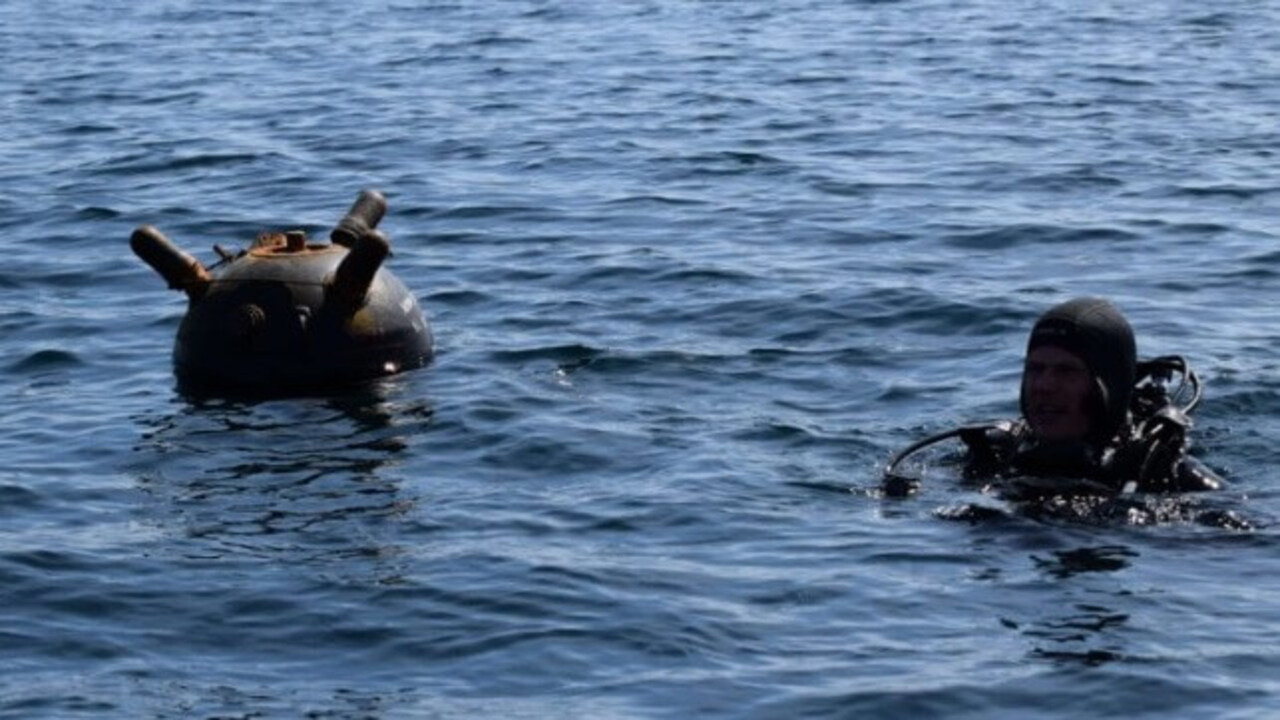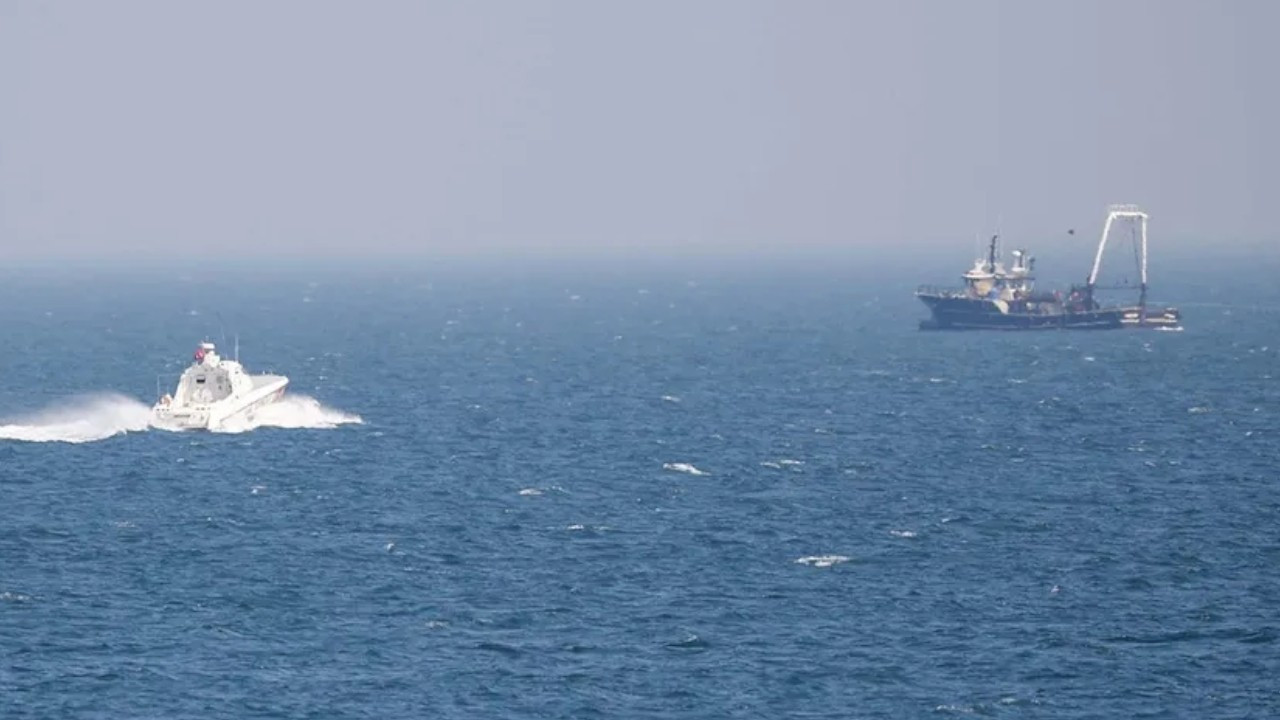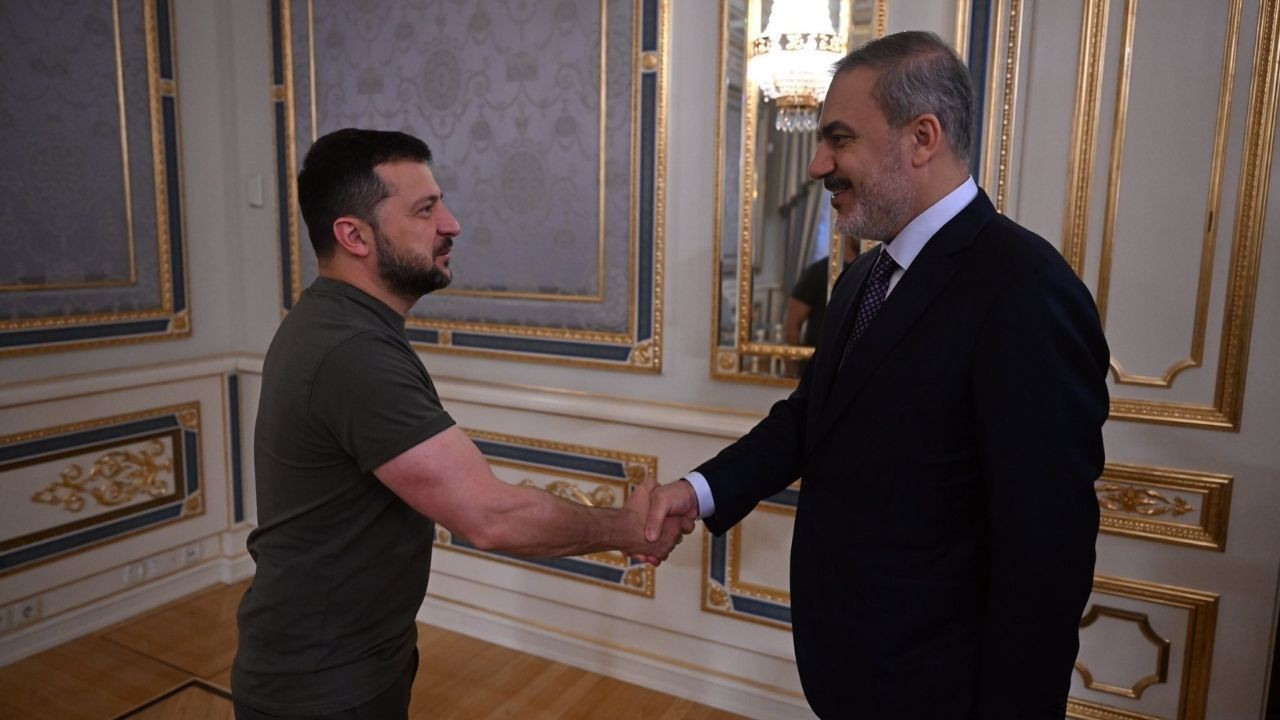Turkey, Romania, Bulgaria sign pact for floating Black Sea mines cleanup
Turkey, Romania, and Bulgaria inked a collaborative agreement to address the issue of mines floating in the Black Sea due to the conflict in Ukraine. The signing followed months of negotiations between these NATO allies.
Reuters
Turkey, Romania and Bulgaria signed an agreement on Thursday on a joint plan to clear mines floating in the Black Sea as a result of the war in Ukraine, following months of talks between the NATO allies.
Turkish Defense Minister Yaşar Güler, his Romanian counterpart Angel Tilvar and Bulgaria's Deputy Defense Minister Atanas Zapryanov signed a memorandum of understanding in Istanbul to form a trilateral initiative to clear the explosives.
"With the start of the war, a threat of floating mines in the Black Sea has arisen. To combat it...we agreed to form a Black Sea mine counter-measures task group," Güler said at the signing ceremony.
Sea mines have posed a threat to Ukraine's export routes via the Black Sea since Russia's invasion in February 2022 and several commercial ships have been hit, including a bulk carrier heading to the River Danube port to load grain in December.
Three minehunting ships from each country and one command control ship, will be assigned to the initiative, a Turkish defense ministry official said.
Naval commanders of the three countries will form a committee to run the operation, Güler said, adding that it might include other Black Sea states after the war in Ukraine ends.
Güler said Turkey viewed potential contributions to this initiative by non-Black Sea NATO allies as "valuable" but that it will only be open to ships of the "three littoral allied countries."
Turkey said last week it would not allow two minehunter ships donated to Ukraine by Britain to transit its waters en route to the Black Sea since it would violate the 1936 Montreux Convention, an international pact concerning wartime passage of the Bosphorus and Dardanelles straits.
"As Turkey, we have implemented the Montreux Convention carefully, responsibly and impartially, which ensures the balance in the Black Sea," Güler said.
Defense ministers from the three Black Sea countries held talks on the mine clearing plan at a NATO meeting in Brussels in October last year and in Ankara in November as they worked to finalize the initiative.
Ankara, which maintains good ties with both Kyiv and Moscow, is also working with the United Nations, Ukraine, and Russia to revive the Black Sea grain initiative which Moscow quit last year, though there have been no public signs of progress on those talks.

 Turkey, Romania, Bulgaria to clear floating Black Sea minesDiplomacy
Turkey, Romania, Bulgaria to clear floating Black Sea minesDiplomacy Turkey deactivates second mine found floating off its coastDomestic
Turkey deactivates second mine found floating off its coastDomestic Turkish foreign Minister Hakan Fidan visits Ukraine's Zelenskiy in KyivDiplomacy
Turkish foreign Minister Hakan Fidan visits Ukraine's Zelenskiy in KyivDiplomacy